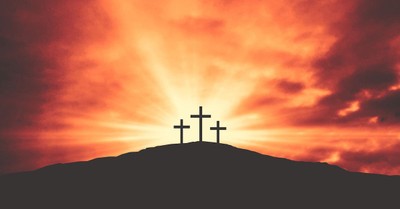Exodus 12:15
15 For seven days you are to eat bread made without yeast. On the first day remove the yeast from your houses, for whoever eats anything with yeast in it from the first day through the seventh must be cut off from Israel.
Other Translations of Exodus 12:15
King James Version
15 Seven days shall ye eat unleavened bread; even the first day ye shall put away leaven out of your houses: for whosoever eateth leavened bread from the first day until the seventh day, that soul shall be cut off from Israel.
English Standard Version
15 Seven days you shall eat unleavened bread. On the first day you shall remove leaven out of your houses, for if anyone eats what is leavened, from the first day until the seventh day, that person shall be cut off from Israel.
The Message
15 You will eat unraised bread (matzoth) for seven days: On the first day get rid of all yeast from your houses - anyone who eats anything with yeast from the first day to the seventh day will be cut off from Israel.
New King James Version
15 Seven days you shall eat unleavened bread. On the first day you shall remove leaven from your houses. For whoever eats leavened bread from the first day until the seventh day, that person shall be cut off from Israel.
New Living Translation
15 For seven days the bread you eat must be made without yeast. On the first day of the festival, remove every trace of yeast from your homes. Anyone who eats bread made with yeast during the seven days of the festival will be cut off from the community of Israel.




Matthew Henry's Commentary on Exodus 12:15
Commentary on Exodus 12:1-20
(Read Exodus 12:1-20)
The Lord makes all things new to those whom he delivers from the bondage of Satan, and takes to himself to be his people. The time when he does this is to them the beginning of a new life. God appointed that, on the night wherein they were to go out of Egypt, each family should kill a lamb, or that two or three families, if small, should kill one lamb. This lamb was to be eaten in the manner here directed, and the blood to be sprinkled on the door-posts, to mark the houses of the Israelites from those of the Egyptians. The angel of the Lord, when destroying the first-born of the Egyptians, would pass over the houses marked by the blood of the lamb: hence the name of this holy feast or ordinance. The passover was to be kept every year, both as a remembrance of Israel's preservation and deliverance out of Egypt, and as a remarkable type of Christ. Their safety and deliverance were not a reward of their own righteousness, but the gift of mercy. Of this they were reminded, and by this ordinance they were taught, that all blessings came to them through the shedding and sprinkling of blood. Observe, 1. The paschal lamb was typical. Christ is our passover, 1 Corinthians 5:7,8. Having received Christ Jesus the Lord, we must continually delight ourselves in Christ Jesus. No manner of work must be done, that is, no care admitted and indulged, which does not agree with, or would lessen this holy joy. The Jews were very strict as to the passover, so that no leaven should be found in their houses. It must be a feast kept in charity, without the leaven of malice; and in sincerity, without the leaven of hypocrisy. It was by an ordinance for ever; so long as we live we must continue feeding upon Christ, rejoicing in him always, with thankful mention of the great things he has done for us.